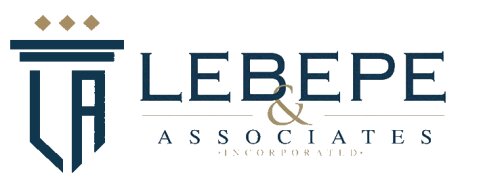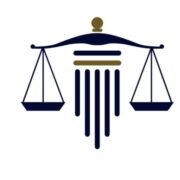Best Project Finance Lawyers in Polokwane
Share your needs with us, get contacted by law firms.
Free. Takes 2 min.
List of the best lawyers in Polokwane, South Africa
About Project Finance Law in Polokwane, South Africa
Project finance is a specialized area of financial law that involves funding large-scale infrastructure or industrial projects using a non-recourse or limited recourse financial structure. In Polokwane, which is the capital of Limpopo Province, project finance often plays a crucial role in sectors such as energy, mining, construction, and public infrastructure. The unique structure of project finance means the repayment of the loan depends primarily on the cash flow generated by the project itself, with the project's assets and rights usually held as collateral. This area of law is complex, involving multiple parties such as lenders, sponsors, government entities, and contractors, as well as a variety of legal frameworks and agreements.
Why You May Need a Lawyer
Engaging a lawyer is vital when dealing with project finance in Polokwane due to the complexity of transactions and the significant financial risks involved. Here are some common situations where legal assistance is essential:
- Structuring a new infrastructure or development project that requires significant external financing
- Drafting, reviewing, or negotiating loan agreements and security documents
- Ensuring compliance with national and local regulations, including environmental and land use laws
- Dealing with government authorities for licensing, permits, or regulatory approvals
- Managing public-private partnership (PPP) agreements or concessions
- Mitigating and managing legal risks associated with construction, operation, or dispute resolution
- Facilitating cross-border financing or foreign investment in local projects
- Advising on taxation, ownership structures, and repatriation of profits
Without proper legal guidance, parties may face costly delays, disputes, or exposure to unforeseen liabilities.
Local Laws Overview
Project finance in Polokwane is governed by a combination of South African national law and local municipal bylaws. The following are key aspects of the legal landscape:
- Companies Act and Regulations: Governs business entities involved in project finance
- National Credit Act: Regulates the granting of credit and protection of borrowers
- Securities Law: Covers registering security interests over assets and collateral
- Environmental Legislation: Laws such as the National Environmental Management Act require environmental impact assessments for qualifying projects
- Municipal Bylaws: Local regulations affecting land use, zoning, and utilities
- Public Finance Management Act: Applies to government participation or support in projects
- Procurement Laws: Compliance with laws if government contracts, tenders, or PPPs are involved
- Taxation and Exchange Control: South African Revenue Service and South African Reserve Bank regulations affect project finance, especially involving foreign currency
Local legal advisors will often work with national experts to ensure comprehensive compliance with all applicable regulations.
Frequently Asked Questions
What is project finance and how is it different from traditional financing?
Project finance involves funding a specific project using the project's future cash flow as collateral, instead of relying on the assets or creditworthiness of the project sponsors. It is structured so that the risk and returns are allocated among various project participants.
Who are the typical parties involved in a project finance transaction in Polokwane?
Common parties include sponsors (project owners), lenders (banks, development finance institutions), contractors, government entities, and sometimes local communities or off-takers who will buy the project's output.
What types of projects are usually financed through project finance in Polokwane?
Infrastructure projects such as roads, energy generation facilities, water treatment plants, mining operations, and large-scale commercial developments are commonly structured as project finance transactions.
Are there specific government approvals needed for project finance deals?
Yes, most projects will require approvals from local and national authorities, such as environmental clearance, building permits, land use consent, and in some cases, public procurement approval.
How are risks allocated in project finance agreements?
Risks such as construction, operational, legal, regulatory, and financial risks are allocated to different parties through detailed contractual arrangements including construction contracts, operating agreements, and loan documents.
What security do lenders usually require in project finance transactions?
Lenders commonly take security over the project's assets, rights, underlying contracts, and in some cases, bank accounts that receive the project's revenues.
Can foreign investors participate in project finance in Polokwane?
Yes, foreign investors can participate but must comply with South African foreign investment and exchange control regulations, as well as any sector-specific restrictions.
What happens if the project’s revenue is not enough to repay the loan?
If revenue falls short, lenders may exercise rights under the security documents, which could include taking control of the project, selling assets, or other remedies specified in the agreements. Project finance is usually non-recourse, so sponsors may not face personal liability beyond their investment.
How long does it usually take to set up a project finance deal?
Depending on the size and complexity of the project, it can take several months to over a year to finalize all legal, financial, and regulatory requirements.
Are there special considerations for public-private partnerships (PPPs) in project finance?
Yes, PPPs are subject to additional legal and regulatory scrutiny. Government procurement processes, value for money assessments, and transparency rules all play a crucial role in such arrangements.
Additional Resources
Individuals and businesses seeking further assistance can consult the following resources:
- Polokwane Local Municipality: For project approvals, permits, zoning, and municipal regulations
- South African Department of Trade, Industry and Competition (DTIC): Guidance on investment and economic development
- Development Bank of Southern Africa (DBSA): Information about funding options and support for infrastructure projects
- South African National Treasury: Resources on public finance management and PPP regulations
- South African Reserve Bank: Regulations for exchange control and foreign investment
- Law Society of South Africa: Directory of lawyers experienced in project finance
Next Steps
If you are considering a project that requires sophisticated financing or are involved in negotiations related to project finance in Polokwane, it is recommended that you:
- Consult with a qualified lawyer who specializes in project finance and is familiar with both national and local laws
- Gather all available information about your project, including financial models, proposed locations, and expected regulatory requirements
- Engage with relevant government departments early to understand application and approval processes
- Ensure all parties are clear on roles, responsibilities, and risk allocations from the outset
- Request your lawyer to draft or review all agreements to protect your interests and ensure compliance
Early and thorough legal advice can help avoid costly pitfalls and set your project on the path to successful financing and completion.
Lawzana helps you find the best lawyers and law firms in Polokwane through a curated and pre-screened list of qualified legal professionals. Our platform offers rankings and detailed profiles of attorneys and law firms, allowing you to compare based on practice areas, including Project Finance, experience, and client feedback.
Each profile includes a description of the firm's areas of practice, client reviews, team members and partners, year of establishment, spoken languages, office locations, contact information, social media presence, and any published articles or resources. Most firms on our platform speak English and are experienced in both local and international legal matters.
Get a quote from top-rated law firms in Polokwane, South Africa — quickly, securely, and without unnecessary hassle.
Disclaimer:
The information provided on this page is for general informational purposes only and does not constitute legal advice. While we strive to ensure the accuracy and relevance of the content, legal information may change over time, and interpretations of the law can vary. You should always consult with a qualified legal professional for advice specific to your situation.
We disclaim all liability for actions taken or not taken based on the content of this page. If you believe any information is incorrect or outdated, please contact us, and we will review and update it where appropriate.











